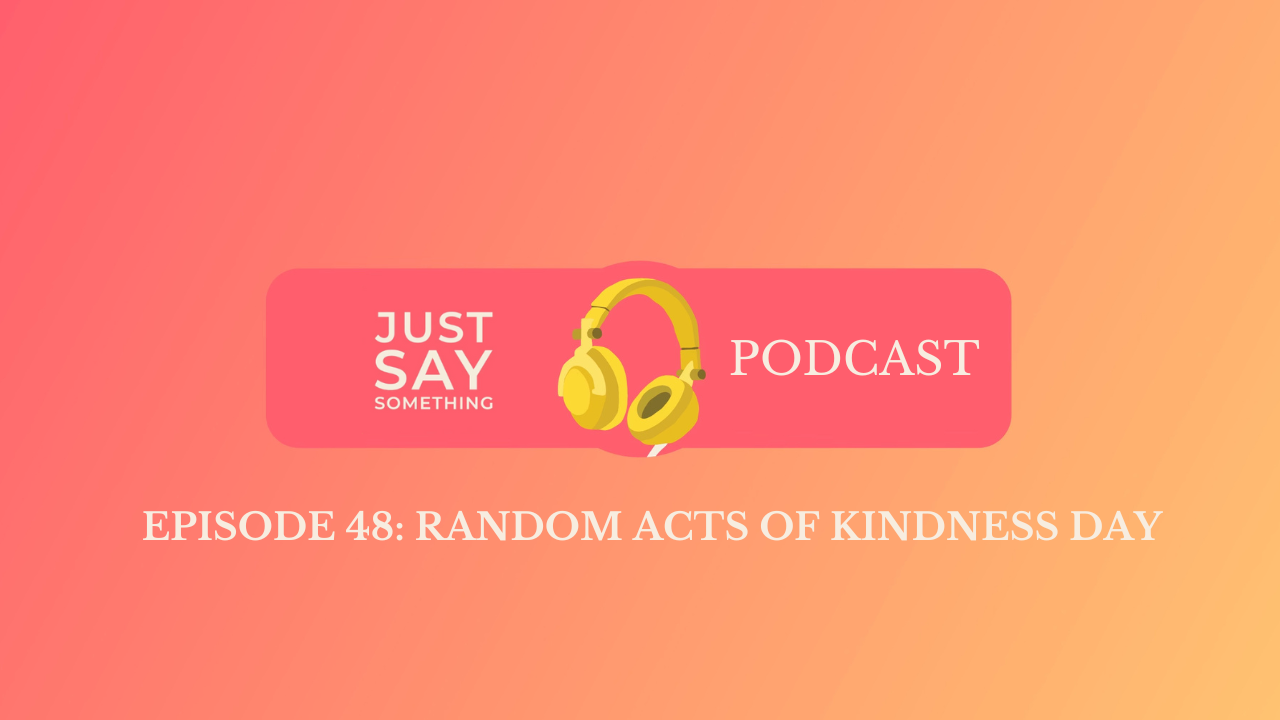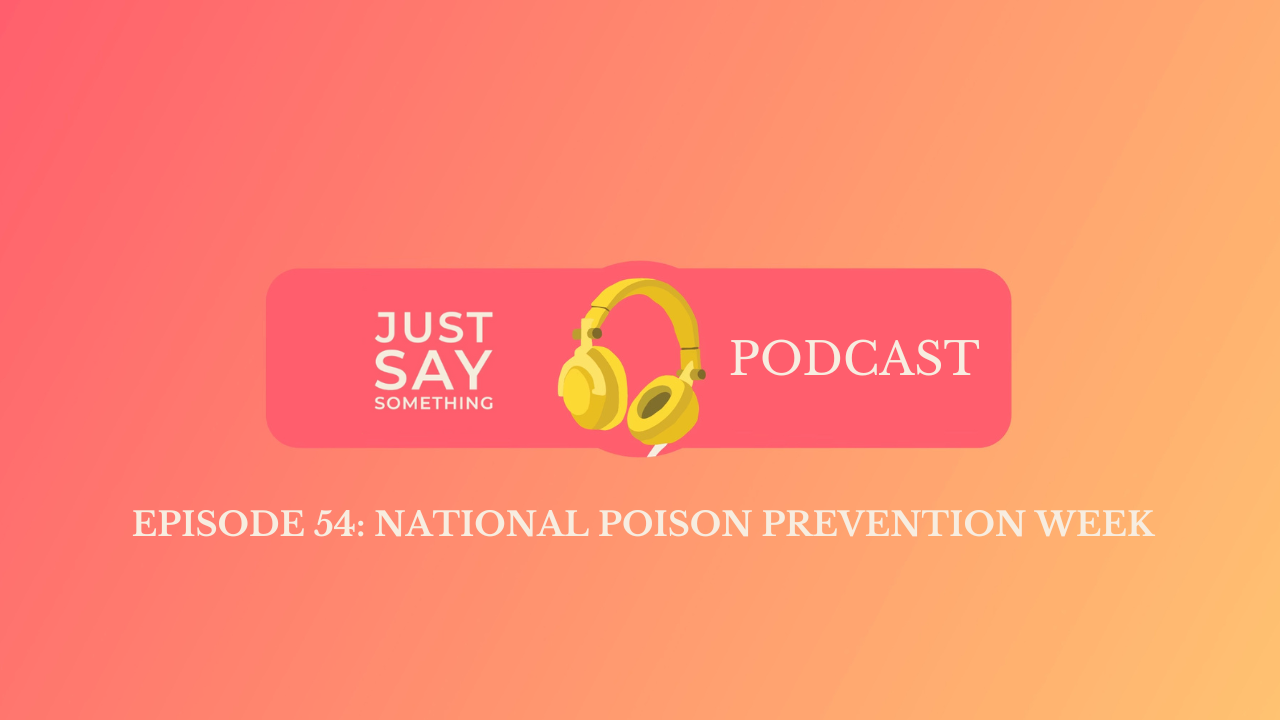Episode Transcript
[00:00:00] Foreign hello everyone and welcome back to another episode of Just say Something podcast. I'm your host Philip Clark, CEO here at Just say Something. And today I'm going to talk about something we could all use a little more of in our lives. Happiness.
[00:00:28] More specifically, we're discussing discussing the International Day of Happiness, which is coming up on March 20th.
[00:00:37] Now you might be thinking, do we really need to have a special day to be happy? Well, stick around because there's more to this celebration than meets the eye. If you enjoy our podcast, please subscribe, like leave a review and share with others who you think might benefit from listening to them.
[00:01:02] So what exactly is the International Day of Happiness?
[00:01:07] It's a day recognized by the United nations to acknowledge that happiness isn't just a personal emotion. It's a fundamental human, human goal. And not just for some of us, for, but for all people around the globe. It's an interesting story.
[00:01:26] This day was established in July of 2012 when the UN General assembly passed Resolution 66 281, officially proclaiming March 20 as the international Day of Happiness.
[00:01:45] But the story behind how this day came about is fascinating.
[00:01:51] The resolution wasn't initial initiated by any one of the world powers, as you might expect.
[00:02:00] It was championed by a small Himalayan kingdom of Bhutan, a country that has pioneered a unique approach to national progress since the early 1970s.
[00:02:15] You see, while most nations measure success through economic indicators like Gross Domestic Product or gdp, Bhutan took a different path.
[00:02:29] They prioritize Gross National Happiness over Gross National Happiness product.
[00:02:38] Imagine a country that initially or that officially values the happiness and well being of its citizens above economic output.
[00:02:54] During the 66th session of the UN General Assembly, Bhutan hosted a high level titled our high level meeting titled Happiness and well Being Defining a New Economic Paradigm.
[00:03:13] This meeting helped pave the way for the establishment of International Day of Happiness.
[00:03:22] What does the UN hope to achieve with this day?
[00:03:25] It's about recognizing the true progress isn't just about economic growth. It's about creating a more inclusive, equitable and balanced approach to development. The one that promotes sustainable development, eradicating poverty and the well being of all peoples. You may think, oh gee, that sounds nice. But isn't happiness just a personal thing?
[00:03:53] What does it have to do with government and international organizations?
[00:03:58] Well, as we've quoted before, here's what research, that keyword research has shown us the conditions that support happiness often align with good governance and social policies. When government upholds peace and social order, when they deliver effective public service, when legal institutions function properly, and when taxation systems are fair, average life satisfaction tends to be higher.
[00:04:39] And in other words, happiness isn't just about individual choices and attitudes. The structures and systems we live with matter as well.
[00:04:50] The UN's vision of international Day of Happiness includes calling on governments to incorporate well being and environmental dimensions into their policy frameworks.
[00:05:06] This connects directly to the 17 Sustainable Development Goals, those ambitious global tech targets addressing poverty, inequality, climate change, environmental degradation, peace and justice. When we align our policies with human rights and sustainable development, we're creating conditions where happiness becomes more possible for everyone.
[00:05:40] So how can we as individuals, businesses, classrooms or communities to participate in the International Day of Happiness? Glad you asked.
[00:05:53] First, we can reflect on what truly brings us happiness. Is it material possessions or is it meaningful connections with others, purpose in our daily lives and contributing to something larger than ourselves?
[00:06:13] Secondly, can we take actions that promote not just our own happiness, but the happiness of others around us?
[00:06:22] Remember, simple acts of kindness, community service, or even just checking in on someone who might be struggling all contribute to our collective well being.
[00:06:35] And third, we can advocate for policies and practices that create the conditions of happiness in our communities.
[00:06:48] This might mean supporting mental health initiatives, environmental protections, social safety nets, and our educational opportunities for all.
[00:07:01] The beauty of International Day of Happiness is that it reminds us happiness isn't a luxury or an afterthought. It's central to our humanity. And while a single day can't solve all the world's problems, it can serve as a powerful reminder of what truly matters.
[00:07:26] As we approach March 20, I encourage all of you listening to think about how you might create the this day or celebrate this day, creating your workplace or your school. Maybe it's by doing something that brings you joy, or by bringing joy to someone else. Maybe it's by starting a conversation about what's happening within your family, your workplace, or your community.
[00:07:56] So before we wrap up today's episode, I want to leave you with this thought.
[00:08:01] Happiness isn't just about feeling good in the moment. It's about creating lives of meaning, purpose and connection. It's about building societies where everyone has the opportunity to thrive.
[00:08:19] So on this International Day of Happiness and every other day, let's commit to pursuing happiness not just for ourselves, but for all the people around us.
[00:08:35] So again, thank you for listening to Just say Something's podcast again. If you enjoying this podcast, please leave a review. Please subscribe and share with others who you think may benefit. And until next week, I'm Philip Clark with Just say Something and I look forward to seeing you later on.


